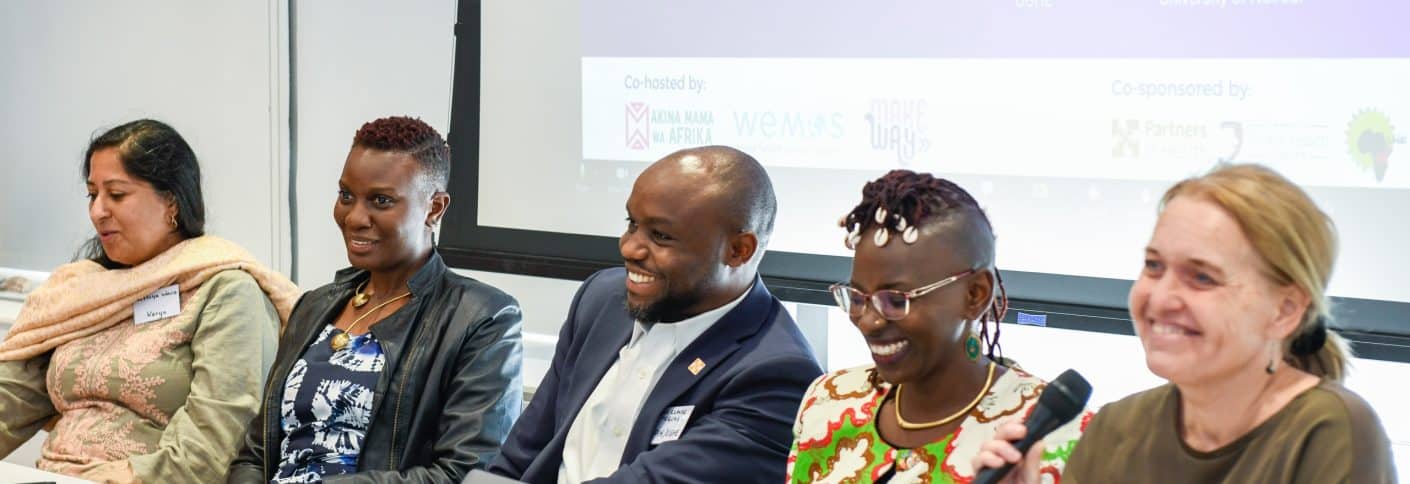The Africa Medical Equipment Facility in Kenya
Does this new blended finance facility contribute to equitable access to healthcare services?

Project name: as part of the Make Way programme
Project period: January 2023 – September 2023
Project partners: Akina Mama wa Afrika and Wemos
In 2023, Wemos and Akina Mama wa Afrika successfully undertook an important project: to ensure that countries would commit to publicly funded health in the political declaration on universal health coverage (UHC).
Access to good healthcare is essential for everybody. But for many people in low- and middle-income countries this is not a given. Governments around the world have a responsibility to ensure that their health systems are sufficiently financed and serve everyone’s needs.
In 2023, the UN member states worked on a political declaration on universal health coverage (UHC), for all people to “have access to the full range of quality health services they need, when and where they need them, without financial hardship”. According to a report by the World Health Organization, the world is off track to achieve UHC by 2030: progress in improving access to health services has slowed down, and more people are spending too much money on basic healthcare.
The significance of such a declaration is that it reflects countries’ political will to tackle an issue together and points out how. A fundamental problem we saw in the first revision of the draft declaration is that it recommended that countries mobilize private sector resources in order to fill budget gaps for health. Using private finance in the health sector drives up its costs and risks commercialization of health services, which exacerbate inequalities in access to health services. Relying more on pay-for-service systems, for instance, makes it harder for people with low incomes to afford healthcare.
Universal healthcare systems rely on public financing and effective public spending, where the resources are effectively used to provide health services based on people’s needs, evidence shows. We want governments and global health actors to be critical when it comes to private–for-profit solutions, and to first and foremost support public health systems. That is why we were keen on having the text on private sector financing deleted from the UN political declaration.
With our partner Akina Mama wa Africa, we worked throughout the whole process of consecutive draft versions of the declaration to influence its content. During three windows of public consultation, we provided specific text suggestions and a rationale supporting public over private finance for UHC. In Geneva, we were able to convey our main messages in informal talks with members of various country delegations in the corridors of the WHO Executive Board meeting in January, and the World Health Assembly in May. We also gave speeches on two occasions at the UN in New York.
In our statement during the UN Multistakeholder Hearings on 9 May, we called on states to:
1) take appropriate measures to increase public finance for health,
2) expand fiscal space for social spending, including fighting tax abuse and unsolved debt crises, and
3) pursue health financing policies aimed and advancing equitable access for all.
In our participation at the High-Level Meeting on UHC on 21 September in New York, we highlighted that access to healthcare is a matter of public interest, and therefore, public money. We called on member states to commit to reforming the international financial system to address unsustainable debts and illicit financial flows.
The Political Declaration on UHC, adopted by the UN member states at the High-Level Meeting in September, reflects our message for publicly funded healthcare. The final declaration omitted the misleading draft paragraph that encouraged private financing to fill the budget gaps for healthcare. Also, article 87 explicitly recognizes that domestic public resources should be the major source of financing for UHC.
This success inspires us to continue working towards a world where healthcare is a universal right, not a privilege for those who can pay for it.
“The adoption of the political declaration underscores a global commitment to UHC and marks an important step forward. We will continue to advocate for systemic solutions and concrete actions by governments that turn these commitments into health for all.“
Barbara Fienieg, global health advocate at Wemos
Receive our newsletter